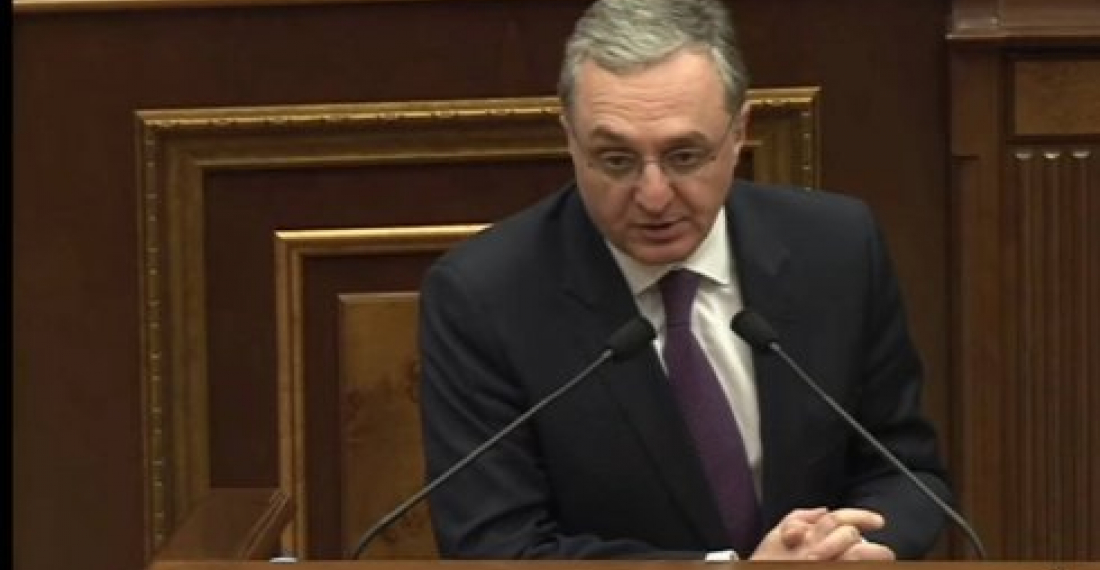Answering in parliament to a question by MP Sos Avetisyan, Armenian Foreign Minister Zohrab Mnatsakanyan said that Armenia has no desire to avoid meetings with the Azerbaijani side, and is ready for a meeting regardless of the elections coming up in Azerbaijan.
The Armenian foreign minister stated that regular meetings were part of a necessary process, and there is no desire on the Armenian side to avoid meetings."
The Minister added:
"We have always emphasised the important component of a peace-building environment in the negotiation package. This also applies to escalation risk reduction functions, which include both ceasefire requirements, the extension of the Office of the Personal Representative of the OSCE Chairman-in-Office, and various other functions that reinforce the important aim of reducing escalation risks. We have serious results, we have a direct working relationship that is the result of the direct agreement of the leaders of the countries, and maintaining, expanding, strengthening them is also an extremely important goal.
It is also crucial to address the function of preparing societies for peace. In this respect, it is also important for us to understand that without the encouragement of leaders, governments, and the ruling sector, it is not justified to expect that in any other format we can achieve any positive result. We have, for example, a very modest result, which is always positive. It was the exchange of journalists that gives us an opportunity to think about how we can pursue such activities that can contribute to an environment conducive to peace. This is a complete package, which naturally includes the details of the actual peace settlement, but it is important for us to maintain a holistic approach to keeping the negotiation process effective."
source: commonspace.eu
photo: Armenian Foreign Minister Zohrab Mnatsakanyan addressing members of the Armenian Parliament on 22 January 2020 (picture courtesy of the press service of the Ministry of Foreign Affairs of Armenia)






